Description
Write a Python program WSD.py that implements the Naive Bayes algorithm for word sensedisambiguation, as discussed in class. Specifically, your program will have to assign a giventarget word with its correct sense in a number of test examples. You are not to use externallibraries such as pandas, scikit-learn, or NLTK.Please implement the Naive Bayes algorithm and cross-validation yourself, do notuse scikit-learn (or other machine learning library).You will train and test your program on a dataset consisting of textual examples for thenoun “plant,” drawn from the British National Corpus, where each example is manuallyannotated with its correct sense of “plant.” Consider for example the following instance:September 1991 1.30 You can win a great new patio Pippa Wood How to cope with a slopeBulbs plant now for spring bloomsThe target word is identified by the SGML tag , and the sense corresponding to thisparticular instance is that of plant%living.The dataset (plant.wsd) is available on Canvas in the Assignment 3 details. Programming guidelines:Your program should perform the following steps:1. Take one argument consisting of the name of one file, which includes the annotatedinstances.2. Determine from the entire file the total number of instances and the possible senselabels.3. Create five folds, for a five-fold cross-validation evaluation of your Naive Bayes WSDimplementation. Specifically, divide the total number of instances into five, round upto determine the number of instances in folds 1 through 4, and include theremaining instances in fold 5. For example, if you have 122 total instances, you willhave five folds with sizes 25, 25, 25, 25, and 22 respectively.4. Implement and run the Naive Bayes WSD algorithm using a five-fold cross-validationscheme. In each run, you will:a. Use one of the folds as your test data, and the remaining folds together asyour training data (e.g., in the first run, use fold 1 as test, and folds 2 through5 as training; etc.);b. Collect the counts you need from the training data, and use the Naive Bayesalgorithm to predict the senseid-s for the instances in the test data;c. Evaluate the performance of your system by comparing the predictions madeby your Naive Bayes word sense disambiguation system on the test data foldagainst the ground truth annotations (available as senseid-s in the test data).Considerations for the Naive Bayes implementation:1. All the words found in the context of the target word will represent the features tobe considered2. Address zero counts using add-one smoothing3. Work in log space to avoid underflow due to repeated multiplication of smallnumbersThe WSD.py program should be run using a command like this:% python WSD.py plant.wsd The program should produce at the standard output the accuracies of the system (as apercentage) for each of the five folds, as well as the average accuracy. It should alsogenerate a file called plant.wsd.out, which includes for each fold the id of the words in thetest file along with the senseid predicted by the system. Clearly delineate each fold with aline like this “Fold 1”, “Fold 2”, etc. For instance, the following are examples of lines drawnfrom a plant.wsd.out fileFold 1plant.1000000 plant%factoryplant.1000001 plant%factoryplant.1000002 plant%living…Fold 2plant.1000041 plant%livingplant.1000042 plant%living…Write-up guidelines:Create a text file called WSD.answers, and include the following information:1. How complete your program is. Even if your program is not complete or you aregetting compilation errors, you will get partial credit proportionally. Just mentionclearly and accurately how far you got.2. If your program is complete, a line consisting only of the name of the dataset:plant.wsd3. If your program is complete, the accuracies of your Naive Bayes system for each ofthe five folds, as well as the average accuracy.4. If your program is complete, identify three errors in the automatically tagged sensedata, and analyze them (i.e., for each error, write one brief sentence describing thepossible reason for the error and how it could be fixed)give me the code fulfilling all the mentioned conditions and make it plagiarism free and no ai generated code and explain the code in detail





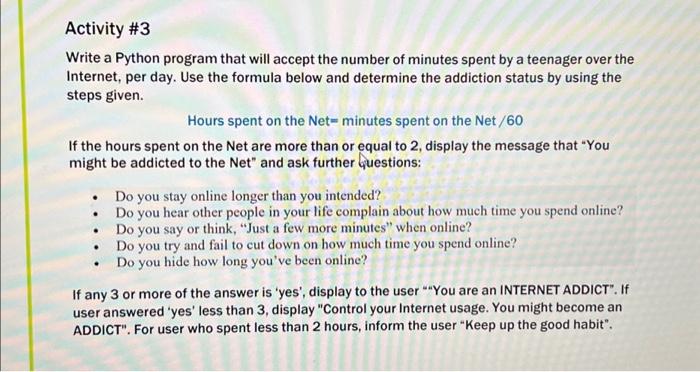
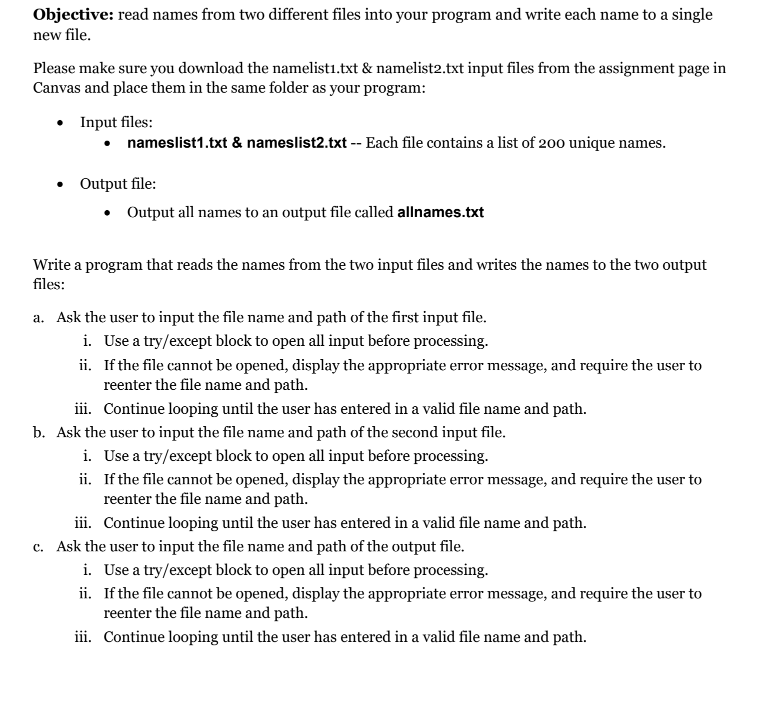
![Question 1: Feeding your pet dog [7 Marks] Dogs eat food, which creates energy that they use to go about their lives. But how much food should you feed your dog? Your job is to write a simple program that helps people decide how much to feed their dog per day. Note: Creating more than one Scanner on System.in in the same program will cause problems. Create ONE Scanner in main, and pass it to any methods that need it. a) Weight How much you should feed your dog depends on how much it weighs. For every pound of the dog, they should have a quarter cup of food. Write a method called convertKGtoLB that accepts one double parameter - a weight in kilograms (kg). The method should calculate and return a double value - the same weight converted to pounds (lb). Write a method called readWeight that receives a Scanner as a parameter. Using the Scanner, the method should read in a dog's weight from the user and return it as a double. Ask the user if they want to enter a weight in kilograms or pounds - prompt the user to enter the letters 'k' for kilograms or 'p' for pounds. Then read in the user's response using the Scanner. If the user enters something other than 'k' or 'p', assume that they want to use pounds and print a reasonable message telling them so. Then prompt the user to enter the dog's weight in the chosen units and read it in as a double. This method should return the weight in pounds. If they entered the weight as kilograms, convert it to pounds by using the convertKGtoLB method. Puppies need more food to grow big and strong. Puppies should eat a half cup of food per pound they weigh. Write a method called readIsPuppy that receives a Scanner as a parameter. Using the Scanner, the method should read in if the dog is a puppy (a baby dog). Ask the user if the dog is a puppy - prompt the user to enter the letters 'y' for yes or 'n' for no. Then read in the user's response using Scanner. If the user enters something other than 'y' or 'n', assume that it is not a puppy and print a reasonable message telling them so. This method should return a boolean. Return true if the dog is a puppy, or false if not a puppy. c) Activity Level More active dogs will need more food. For every four miles walked a day, a dog should get a quarter cup more food. Write a method called convertKMtoMI that accepts one double parameter - a distance in kilometers (km). The method should calculate and return a double value - the same distance converted to miles (mi). Write a method called readActivityLevel that receives a Scanner as a parameter. Using the Scanner, the method should read in a dog's daily walking distance and return it as a double. Ask the user if they want to enter a distance in kilometers or miles - prompt the user to enter the letters 'k' for kilometers or 'm' for miles. Then read in the user's response using the Scanner. If the user enters something other than 'k' or 'm', assume that they want to use miles and print a reasonable message telling them so. Then prompt the user to enter the dog's daily walking distance in the chosen units and read it in as a double. This method should return the distance in miles. If they entered the distance as kilometers, convert it to miles by using the convertKMtoMI method. d) Breed Some dog breeds have special requirements. Labradors and Golden Retrievers should get a quarter cup more food per 5 pounds they weigh. German Shepherds should get a quarter cup more food per seven pounds they weigh. Bernese Mountain Dogs should get a quarter cup less food per ten pounds they weigh. Other breeds do not have special considerations. Write a method called readDogBreed that receives a Scanner as a parameter. Using the Scanner, the method should read in a dog's breed and return it as a char. Prompt the user to enter a letter to represent their dog breed as follows: 'l' for Labrador, 'r' for Golden Retriever, 'g' for German Shepherd, 'b' for Bernese Mountain Dog, or 'o' for other. Then read in the user's response using Scanner. If the user enters something other than 'l', 'r', 'g', 'b' or 'o', assume that their dog is other and print a reasonable message telling them so. This method should return the letter of the dog breed. e) Calculate the Amount Write a method called findFoodAmount that accepts several parameters - a weight in pounds (lb), whether the dog is a puppy, the dog's daily walking distance (mi), and the dog's breed. The method should compute and return the amount of food to feed the dog. In addition to the amounts stated above, the following must also be considered: - Overweight dogs should get one cup less. An overweight Labrador, Golden Retriever, or German Shepherd is over 80 lbs. An overweight Bernese Mountain Dog is over 90 lbs. There is no limit known for other breeds of dogs. - Puppies should also get one cup less, but overweight puppies (over 80/90 pounds, as above) should not have a reduction in their food. f) Print the amount Write a method called printFoodAmount that accepts the amount of food to feed the dog. The method should print a nice message telling the user how much food to feed their dog. Question 2: Farkle Scoring [8 Marks] Farkle is a dice game where you roll six dice and try to be the first to score 10,000 points or more. Your job is to create a Farkle scoring program. Given one to six dice, you will determine the score for those dice. Farkle Rules: - Each person rolls six dice and sees if they have rolled any scoring dice or combinations. Any dice that score may be set aside. You must set aside at least one scoring dice of your choice, if possible, but it is not required to set aside all scoring dice. Then you may choose to roll the remaining dice. - For example, if you rolled 1-3-3-5-5-6, you could set aside the 1 and the two 5's for scoring, or you could choose to set aside only the 1. All dice that are not set aside may be rerolled. - If all six dice are set aside for scoring, you can roll all six dice again and continue adding to your accumulated score. Or you can bank your points, end your turn, and pass the dice to the next player. - Your turn continues until either you decide to stop and score your points, or until you fail to roll any scoring dice on a throw (known as a Farkle) and all your points gained so far on that turn are lost. - At the end of your turn, any points you have scored are written down and the dice are passed to the next player. Reminder 1: Your job is to create a Farkle scoring program. Given 1 to 6 dice in ascending order, you will determine the score for those dice. You are not implementing a complete game. Reminder 2: This assignment should be completed using material from Weeks 1-6. (No loops needed!) c) Print the score Write a method called printScore that accepts the score. The method should print a nice message telling the user how much they scored. If the user scored zero points, the program should print "Farkle!". Example Outputs: Dice to Score: 123456 Points Earned: 3000 Dice to Score: 123555 Points Earned: 600 Dice to Score: 223346 Farkle!](https://gotit-pro.com/wp-content/uploads/2023/10/7692d785-5bf0-40dc-bafd-7ce93b1e4999.png)
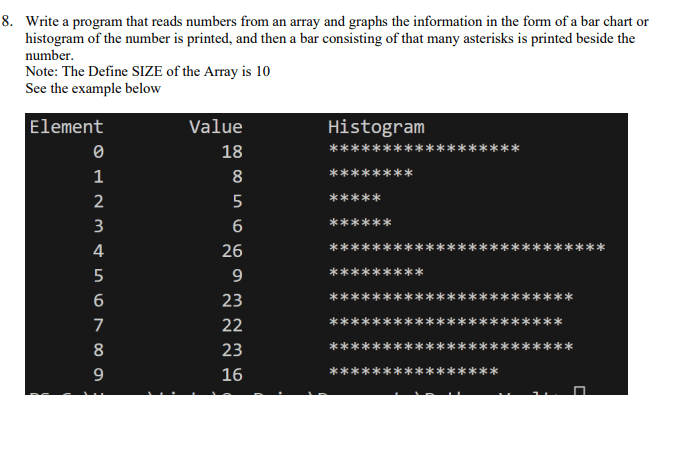
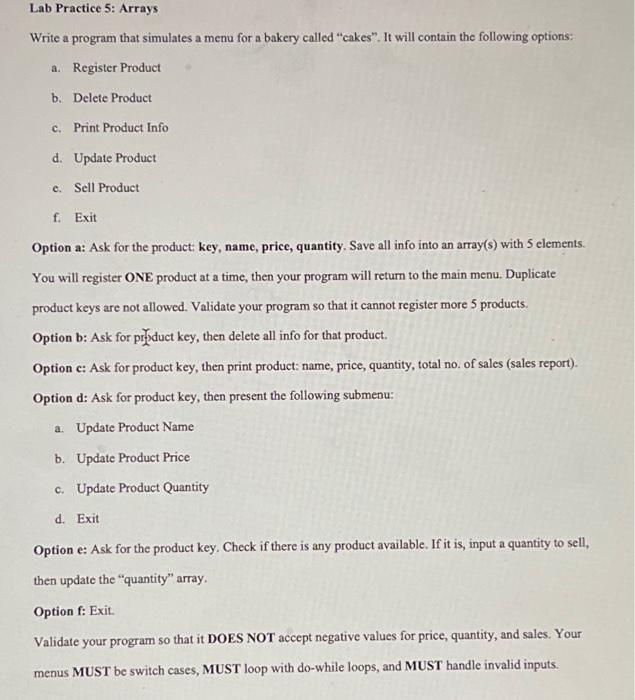
![(b) Modify the program in Q3(a), with the following new rules: - Players will need to win 3 games to become the overall winner. - Implement a penalty - for the player who skipped, entered an incorrect expression, or entered an expression that evaluated to the wrong result, will draw 2 random digits into their hand. - The player who loses the game will be awarded a "Skip" card in the next game. With the "Skip" card, the player can hit < Enter > to skip, without a penalty. - If not utilized, the "Skip" cards CANNOT be carried forward to the next game. Illustration of the "new" game on the left column, with the rules of the game explained on the right column: Enter player: Alan Enter player: Betty Enter player: Starting hand (number) of digits: 4 Let's play... Game 1 Round 1: Result 6 Betty's hand: [5,2,1,1] Enter expression: 5+1 Correct! Betty's hand: [2,1] Alan wins this game in 4 rounds!! Overall game score: Alan 1, Betty 0 Let's play... Game 2 Round 1: Result 5 Betty's hand: [3, 6, 5, 7, 'S'] Enter expression: Skipped with no penalty!! Betty's hand: [3,6,5,7] Alan's hand: [2,1,2,1] Enter expression: Skipped and 2 digits added to hand Alan's hand: [2,1,2,1,4,7] Betty wins this game in 5 rounds!! Overall game score: Alan 1, Betty 1 Let's play... Game 3 Round 1: Result 6 Betty's hand: [1, 2, 8, 7] Enter expression: 8-2 Correct! Betty's hand: [1, 7] Computer randomized the play sequence and will stay the same for every game/round End of game, if no overall winner, continue to play another game. Loser will be awarded a "Skip" card in the next game. "S" represents the "Skip" card awarded to Betty. No penalty for Betty as she has a "Skip" card. Hit < Enter > key to skip if cannot form an expression. In this case, the player who skipped will draw 2 random digits into their hand. End of game, if no overall winner, continue to play another game. Loser will be awarded a "Skip" card in the next game.](https://gotit-pro.com/wp-content/uploads/2023/10/1fa83cc6-5755-4d51-b5f6-f4335b49f1c8.jpg)

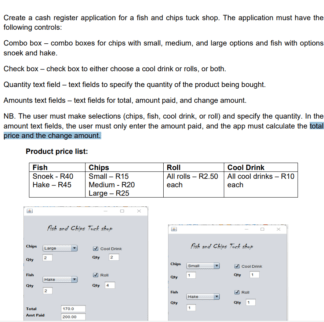
Mike Snyder –
Great Work In Timely Fashion. Something what I wanted.
Glenn Mccall –
great work as usual thanks
Pete Hansen –
Excellent job, my friend. Thank You!!